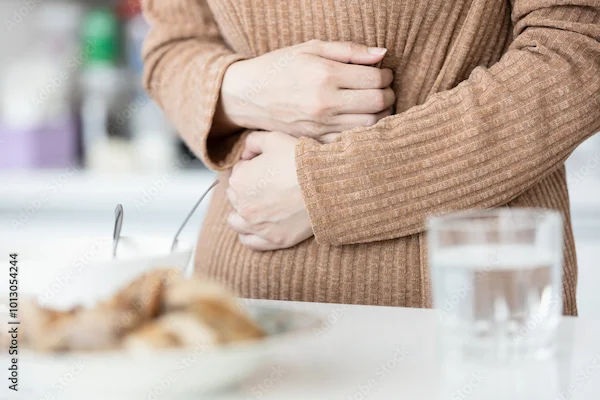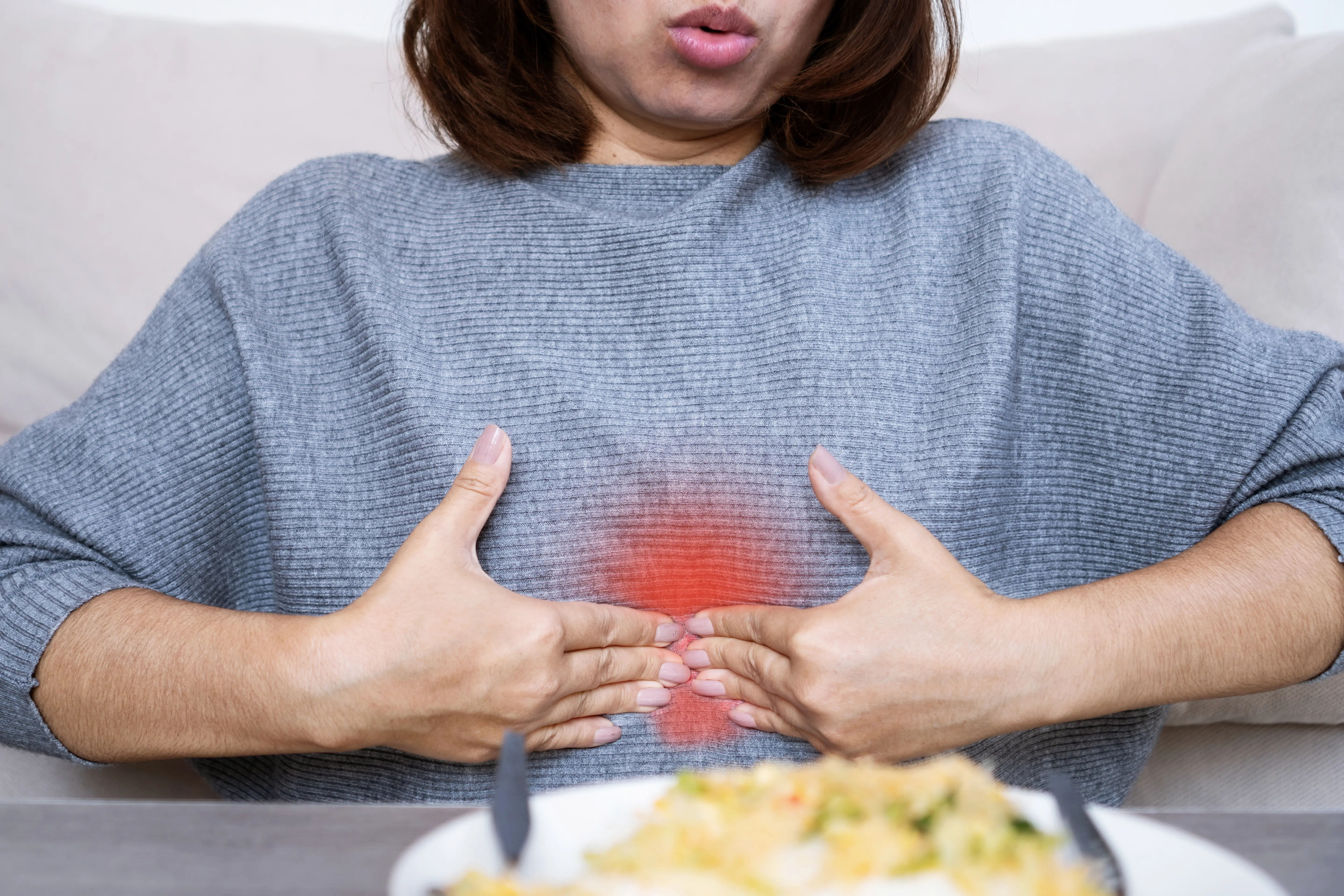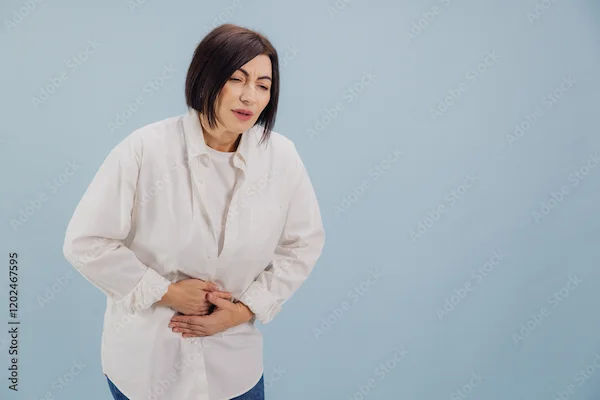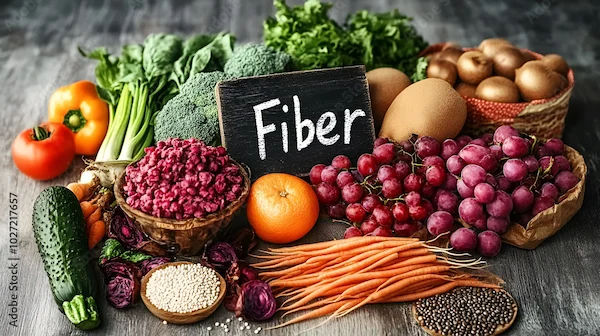All About Colon Infection
Learn everything about colon infections, including causes, symptoms, treatments, and prevention tips. Get expert advice to maintain a healthy digestive system.

Written by
Last updated on 3rd Jul, 2025
Colon infection is a condition in which harmful bacteria, viruses, or parasites can invade the large intestine, leading to inflammation and many gastrointestinal problems. Colon infection (colitis) is a potentially serious health condition that is caused by various factors like poor diet, sedentary lifestyle or other underlying health conditions. The colon, being one of the essential parts of the human digestive system, aids in absorbing water, processing waste, and maintaining overall gut health. So, an infection here disrupts its common function and leads to discomfort and complications. So, knowing the causes, symptoms, and treatment options for colon infections is essential for maintaining digestive health and preventing severe complications.
Types of Colon Infections
Colon infections can be categorised in the following three parts –
Bacterial Infections (e.g., Clostridioides difficile): Colon infections are primarily caused due to bacterial infections. Clostridioides difficile (C. difficile) is a bacterium frequently associated with hospital-acquired infections. It disrupts the balance of beneficial bacteria in the colon, resulting in intense diarrhoea and colitis. Similar symptoms can also result from other bacteria, including Salmonella, Escherichia coli (E. coli) and Shigella.
Viral Infection: Viruses can also infect the colon and are known as causes of gastroenteritis. Norovirus, a highly contagious virus, is among the top causes of viral colon infections. It is easily transmitted through contaminated food, water, or surfaces and can cause severe vomiting, diarrhoea, and stomach cramps.
Parasitic Infections (e.g., amebiasis): Parasitic colon infections are caused by Entamoeba histolytica, a parasite common in places with poor sanitation and hygiene standards. The signs of a parasitic colon infection are similar to those of a bacterial one, including diarrhoea, abdominal pain, and blood in the stool.
Causes and Risk Factors
Some of the common causes of colon infections are –
Ingestion of Contaminated Food and Water: Food and/or water contaminated with harmful microorganisms play a significant role in pathogens' entry into the body.
Use of Antibiotics: The use of excessive antibiotics can take away the normal balance of bacteria in the colon; this left-over condition leads to infections such as C. difficile.
Poor Habits: Lack of proper hygiene and sanitation practices, such as improper hand washing and not using properly cleaned toilets, can increase the risk of colon infections.
Surgical or Endoscopic Procedure: Procedures like a colonoscopy or surgery may insert bacteria into the colon, causing infection.
Additionally, the risk factors that increase susceptibility to colon infection include –
Weak Immunity: Patients with immunosuppression, for example, HIV/AIDS or undergoing chemotherapy, are at higher risk of colon infections.
Age: Elderly people and very young children are susceptible to colon infections and their associated complications.
Chronic Diseases: Diseases such as diabetes or inflammatory bowel disease (IBD) that compromise immunity can predispose an individual to infection.
Symptoms of Colon Infections
The symptoms of a colon infection can vary based on the severity of the disease and the type of pathogen involved. Some of the common symptoms of this condition include –
Diarrhoea: This is the most common symptom of a colon infection, and it usually comes with blood or mucus in stool.
Abdominal Pain and Cramps: The painful cramps may result from inflammation and irritation of the colon.
Fever and Chills: It is one of the typical symptoms of this infection, representing an immune response to the pathogen.
Fatigue and Weakness: Chronic diarrhoea and dehydration can lead to fatigue and weakness.
Diagnosis of Colon Infections
An accurate diagnosis is necessary to make the right treatment decision for a colon infection. The doctor will start by assessing the medical history and gathering information about the symptoms, possible exposure risks, and recent travel history. The physical exam will look for abdominal tenderness, bowel sounds, and signs of dehydration or systemic infection.
After that, the doctor will advise the following tests for a more detailed report –
Stool culture
Blood tests
Imaging studies such as CT scans
Treatment Options
The treatment options for colon infection have three parts: medication, lifestyle adjustments and
surgery. Here is more on that –
Medication and Antibiotic Therapy
In terms of medication and antibiotic therapy, the options are –
Antibiotics such as metronidazole or vancomycin help eradicate the infection.
Treatment for viral infections includes oral rehydration solutions that alleviate symptoms.
Antiparasitic drugs, such as metronidazole or paromomycin, kill the parasites responsible for parasitic infections.
Lifestyle and Dietary Changes
The lifestyle and dietary changes that one should make for colon infection are –
In cases of diarrhoea and dehydration, opting for fluid volume replacements via oral rehydration solutions or intravenous fluids are necessary.
A bland diet (BRAT diet: bananas, rice, applesauce, and toast) will not stress the digestive system and help it recover faster.
Optional Surgical Treatments
If colon infections have complications like a perforated colon or toxic megacolon, then in rare cases, surgery may be necessary. The surgeon will remove the part of the colon that is damaged to avoid colon perforation or infection.
Prevention Strategies
Prevention is the best strategy to fight colon infection, and this process starts with effective hygiene and sanitation practices. This includes –
Handwashing: Proper hand washing with soap and water after using the restroom and before handling food will significantly reduce the risk of infection.
Food Safety: Eating properly cooked food and drinking safe water can help prevent bacterial and parasitic infections.
Avoiding Contact With Infected Individuals: It is important to stay away from infected patients to prevent viral infections.
The next part of prevention includes opting for probiotics in the diet. Probiotics, including lactobacillus and bifidobacterium, can help restore good gut bacteria, especially after antibiotics. A healthy and balanced diet high in fibre will support a healthy colon and help prevent infection.
Vaccination is the last part of colon infection prevention strategies. The upper gastrointestinal tract is also susceptible to viral infections, but these infections can be prevented with vaccines, such as the rotavirus vaccine. Prophylactic measures like administering antibiotics before infections related to surgeries or medical procedures may also be recommended in high-risk individuals.
Diet and Nutrition for Colon Health
A good and balanced diet is one way to prevent colon infections. Here is a list of foods individuals should include and the ones that they stay away from –
Foods to Include
Foods High In Fibre: Fruits, vegetables, whole grains, legumes, etc.
Yoghurt and fermented foods
Lean Proteins: Chicken, fish, and tofu
Foods to Avoid
Heavily seasoned and/or oily food
Dairy items
Sugary and caffeinated drinks
Complications and Long-term Outlook
If not treated, colon infections can cause serious complications. Persistent infections and untreated cases can result in long-term digestive problems. They can also lead to diarrhoea and dehydration, which can be fatal in some individuals. Additionally, nutritional deficiency is another major complication of this condition. In some people, prolonged or repeated infection can lead to an increased risk of colon cancer.
Fortunately, most colon infections can be treated with medications and lifestyle changes. While the outlook is favourable with prompt treatment, some will continue suffering from digestive problems after they have been cured.
Conclusion
Colon infections may be mild or serious, but knowing the causes, signs, and treatment options is important for taking care of it in the best way possible. The possibility of complications can be reduced with early detection, good hygiene, and surrounding the patient with the right medical expertise as soon as possible. Furthermore, following the preventive measures can help reduce the risk of recurrence, and general wellness measures will help support colon health.
Consult Top General Gastroenterologist
Consult Top General Gastroenterologist

Dr. Shivaraj Afzalpurkar
Gastroenterology/gi Medicine Specialist
13 Years • MBBS, MD General medicine (Gold medalist), DrNB (Gastroenterology), MNAMS
Bengaluru
Apollo Clinic, JP nagar, Bengaluru

Dr Bhargav Vuppumalla
General Physician/ Internal Medicine Specialist
5 Years • MBBS MD GENERAL MEDICINE
Bengaluru
Apollo Medical Center, Marathahalli, Bengaluru

Dr. Amit Pandita
Gastroenterology/gi Medicine Specialist
10 Years • MBBS. MD (INTERNAL MEDICINE) DrNB (GASTROENTEROLOGY AND HEPATOLOGY)
Delhi
Apollo Hospitals Indraprastha, Delhi

Dr. Ankit Vijay Agarwal
Gastroenterology/gi Medicine Specialist
14 Years • MBBS(Osmania), DNB(Internal Medicine ), DM ( Osmania) Consultant Gastroenterologist, Hepatologist and Advanced Therapeutic Endoscopist
Hyderabad
Apollo Hospitals Jubilee Hills, Hyderabad

Dr Piyush Vishwakarma
Gastroenterology/gi Medicine Specialist
11 Years • MBBS, MD, DrNB,
Delhi
Apollo Hospitals Indraprastha, Delhi




